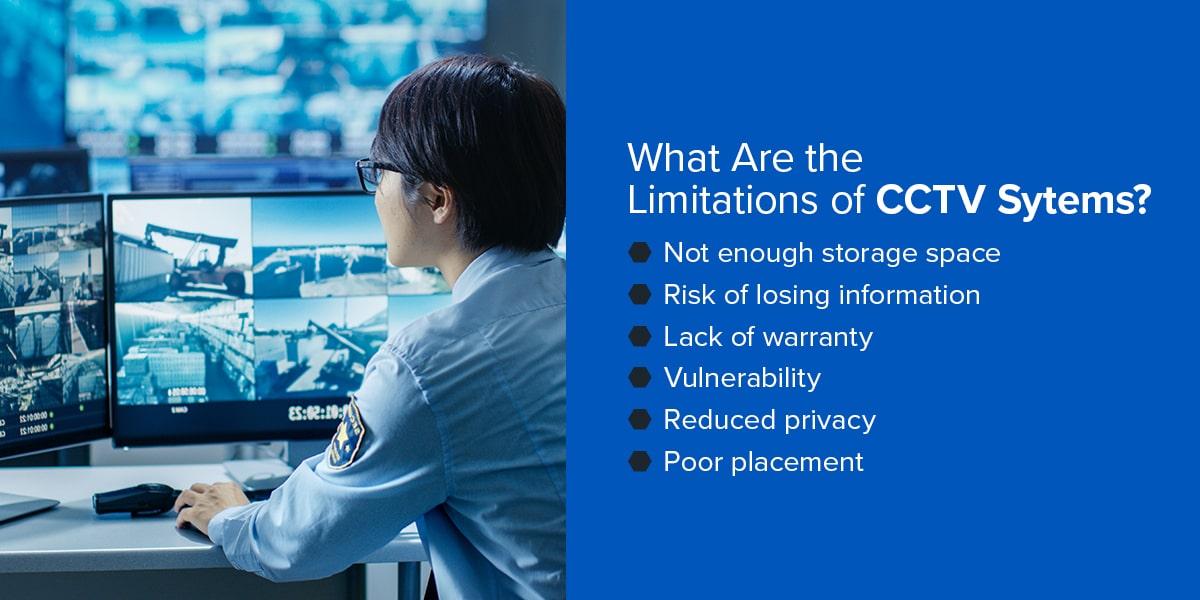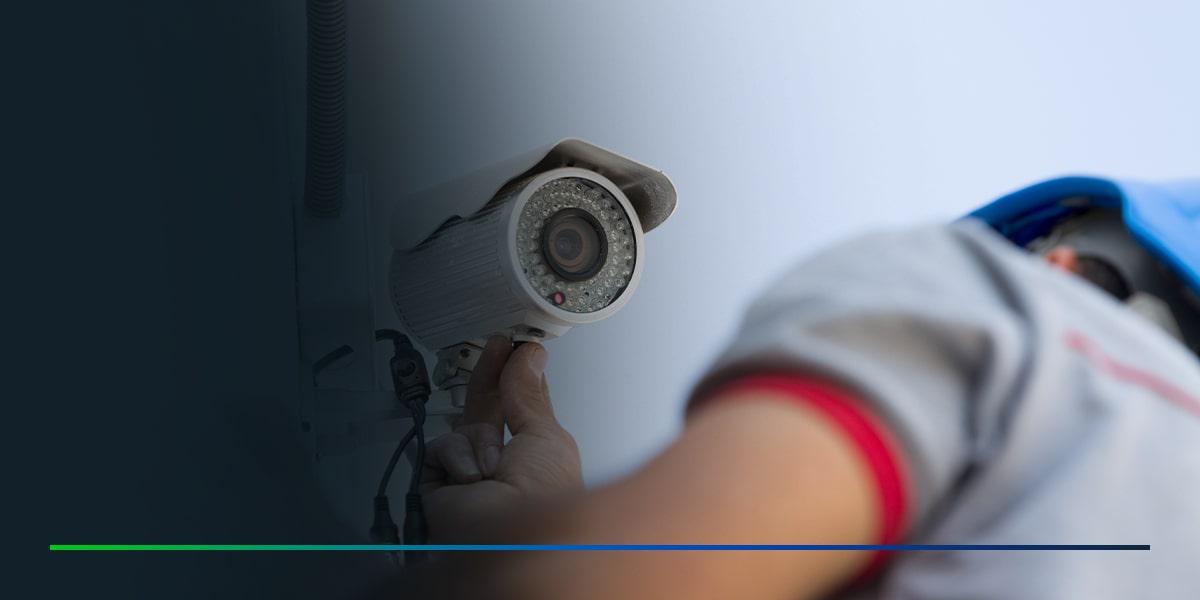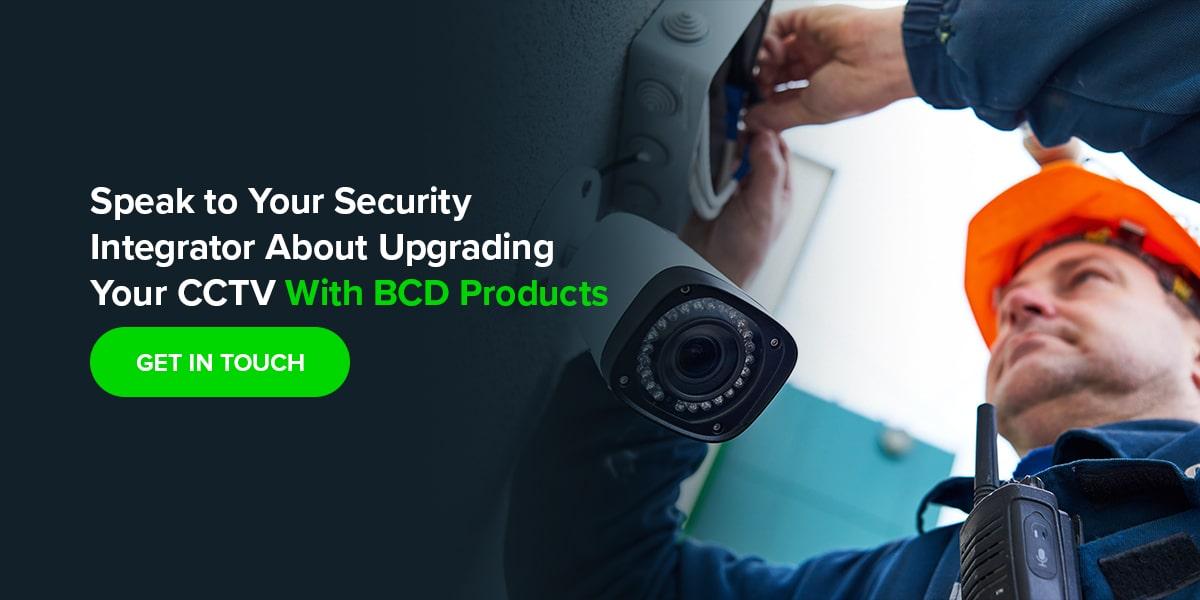Closed-circuit TV (CCTV) systems are ideal for security and surveillance, but they often require upgrades to ensure they operate effectively. The facilities that use these cameras, such as schools, casinos, gas stations, government buildings and small and midsize businesses, require high picture quality and frame rates. If you are involved with these or similar organizations, knowing when you should replace your security cameras and system is critical.
This guide explores several reasons you should upgrade your CCTV security system and how to pick the best replacement equipment for the most effective results.
When Do CCTV Systems Fail?
The strongest indication that you should upgrade your CCTV system is when it fails. The most prevalent issue with these systems is video loss. There are several reasons why this may occur, including:
- Wiring issues: Faulty or loose wiring can cause a lack of video. Improper connections can also result in poor line insulation, short circuits, open circuits and equipment damage.
- Power loss: If a single camera loses power, you may need to replace its power adapter. Otherwise, your power supply box is most likely the culprit if all of your cameras are affected.
- Software problems: CCTV security systems often require frequent updates to maintain peak operation. If your equipment is outdated, it may fail due to being unable to update.
While a lack of video is the most common CCTV failure, there are other ways in which your system can stop meeting your needs. The most common failures include:
- Obstructed view: Items such as new structures or debris from storms may block the amount of territory you can see.
- Recording malfunction: While your cameras may work fine, your system may have issues recording and not catch important events for future use.
- Poor image quality: Seeing images clearly is vital for locating suspects through facial recognition or license plate numbers, but your system may have blurry video.

What Are the Limitations of CCTV Sytems?
Another reason you should upgrade your CCTV is to reduce any limitations the system may have. Some common restrictions include:
- Not enough storage space: Older systems often have less storage space available and require you to buy additional storage cards or video recorders.
- Risk of losing information: If a system doesn’t have cloud or disaster recovery capabilities, you have a higher risk of losing valuable data that you may need to access in the future.
- Lack of warranty: When you purchase a CCTV system, ensure it comes with a comprehensive warranty. That way, you can get replacements for these vital devices without spending more money. Warranties are also a good indication that the manufacturer produces high-quality devices.
- Vulnerability: Outdoor security cameras are essential for discouraging intruders and informing you of any suspicious activity on your facility’s property. However, they can be susceptible to harsh weather and strong winds. Water or impacts from debris can also damage your cameras , and bad actors may tamper with the system to prevent you from seeing their actions.
- Reduced privacy: Surveillance is vital for increased safety and security, but your workers or organization members may feel like it’s intruding on their privacy. Also, you are limited in where you can put cameras, as areas such as bathrooms and changing rooms are off-limits.
- Poor placement: Your cameras may be placed in locations that don’t cover enough ground, resulting in potential blind spots.
While some of these limitations are unavoidable, you can upgrade your equipment and improve your CCTV security system’s performance in several areas to make up for it.
When to Upgrade Your CCTV System
There are several reasons why you may want to upgrade your CCTV system. Your current setup may fail to meet your needs, or you may want to replace it with newer and more effective devices. In any case, upgrading your system will provide benefits such as:
- Better system integration: CCTV security systems are constantly evolving and introducing new helpful features. One such feature is the ability to combine every element of your system, which enables you to gather necessary data quicker and reduce the time it takes to review incidents.
- Lower costs: Older systems that are almost obsolete may require hardware that is more expensive due to being uncommon. They may also break frequently and require more maintenance, which increases costs. While new devices may cost more than repairs, they will quickly pay for themselves in the long run.
- Better picture quality: Modern systems have advanced visuals with higher pixel (p) resolutions. The average range is 720p to 1080p, with more pixels equalling greater picture definition. Some systems even provide 4K resolution, or 4000p.
- Larger storage capabilities: Today’s video recorders use video compression, a technique that maximizes your storage capability by making the videos take up less space.
- More technical support: As systems become outdated, they offer less support to businesses that use them. Upgrading your CCTV security system will ensure you always have help when you need it.
How to Upgrade Your CCTV System
When you upgrade your security system, your first step should be to analyze your current devices. In many cases, you will only need to replace a few of your system’s elements. For example, if you want to improve your visuals, you can get cameras with better resolutions and wider fields of view. Or, you can enhance your system by using fully copper wires, which perform better than aluminum options.
Some other areas you can upgrade include:
1. Technology and Software
Ensuring you have the most recent software updates will ensure your security system is consistently effective. One way to achieve this upgrade is to implement newer devices that are capable of receiving these updates. It’s also important to partner with companies that provide cutting-edge solutions.
2. Video Recorder
While your security cameras surveil your property, your video recorder does the hard work of storing the information so that you can reference it later, if needed. Upgrade your system by choosing a product with features such as a large amount of raw storage, hybrid cloud capability, disaster recovery and comprehensive warranties. You should also look for an option that provides higher video resolution.
Future-proof your security by choosing a recorder that allows you to upgrade to more powerful security cameras. Choosing this device first is important, as the cameras you can use depend on what you select.
3. Power Supply
When enhancing your CCTV security system, having the right amount of power is vital for success. Make sure your equipment has enough electricity to function by replacing or upgrading bad cables. You should also match your camera’s power requirements to your power supply so that you avoid accidentally damaging your equipment.
With increased power, your system can successfully protect your property.
Speak to Your Security Integrator About Upgrading Your CCTV With BCD Products
If you want to upgrade your security system with high-quality devices, ask about products from BCD. We offer a range of products and services that would improve your system, such as our network video recorders, which can store up to 80 terabytes (TB) of raw storage and offer disaster recovery.
If you want superior technology capabilities, we provide powerful cloud integration through Harmony Bridge, which offers hybrid data storage solutions. Another BCD product, a video surveillance delivery system, assists with your daily video monitoring by serving as a workstation capable of reliable access control, video analytics solutions and storage.
Ask your security integrator about BCD products today to improve your current system and benefit from top-quality devices.


